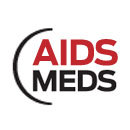
An interesting and informative article by AIDSmeds.com writer Tim Horn.
While studies exploring the effectiveness of antiretroviral (ARV) therapy for HIV prevention purposes have generally yielded encouraging results, a group of researchers at the University of North Carolina at Chapel Hill suggest that the way forward is not entirely clear and that additional research is needed, particularly in understanding the combined benefits of biomedical and behavioral interventions in specific at-risk communities.
“Recent research developments in [pre-exposure prophylaxis, or PrEP] and [treatment of people living with HIV to curtail HIV transmission] provide a unique opportunity to highlight areas of advancement that have galvanized changes in HIV treatment and prevention, and to highlight topic areas that remain undecided and controversial,” write Myron Cohen, MD, and his colleagues in an editorial published ahead of print by the journal AIDS.
The paper reviews much of the scientific research that has contributed to our current understanding of ARV treatment as prevention, including pharmacologic and observational studies, ecological evaluations and various modeling and empirical data. And despite the completion of several sound clinical trials—also summarized by Cohen and his colleagues and reviewed here—gaps in knowledge remain.
CLICK HERE to read the full article.
